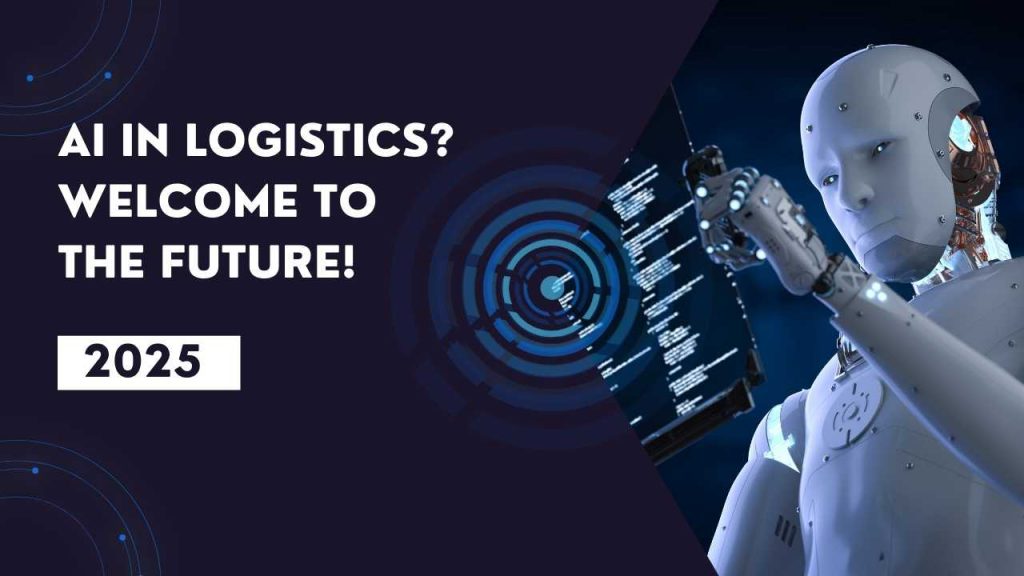Introduction
In the fast-evolving world of logistics, staying ahead means embracing technology that can revolutionize operations. Artificial intelligence (AI) and machine learning (ML) are no longer just buzzwords—AI in logistics is becoming an essential tool in transportation management systems (TMS). By automating processes, predicting outcomes, and optimizing operations, AI and ML are transforming how businesses handle logistics.
Discover how transportation management software can leverage AI to streamline your operations and boost efficiency.
The Role of AI and ML in Logistics
AI and ML are reshaping logistics by introducing intelligent systems that can:
-
Predict delivery times with unparalleled accuracy.
-
Optimize routes for cost efficiency and reduced emissions.
-
Automate freight auditing and payment processes.
Example: A study by MIT Sloan Management Review revealed that AI-driven logistics can reduce transportation costs by up to 15%.
Key Applications of AI and ML in Transportation Management
1. Predictive Analytics for Supply Chain Optimization
Predictive analytics, powered by AI, uses historical data to anticipate future demand, potential disruptions, and cost fluctuations.
Benefits:
-
Reduces inventory costs by avoiding overstocking.
-
Mitigates risks by identifying weak points in the supply chain.
-
Enhances supply chain modeling and planning.
For more insights, explore supply chain network optimization software.
2. Route Optimization and Dynamic Scheduling
AI algorithms analyze traffic patterns, weather conditions, and delivery windows to create the most efficient routes.
Advantages:
-
Shortens delivery times.
-
Reduces fuel consumption and operational costs.
-
Improves customer satisfaction with timely deliveries.
Example: Leading TMS solutions have integrated freight rate negotiation tools to adjust routes dynamically based on real-time data.
3. Automation in Freight Auditing and Payments
Freight auditing is time-intensive and prone to errors when done manually. AI automates this process, ensuring accuracy and efficiency.
Key Features:
-
Identifies discrepancies in billing.
-
Ensures compliance with contractual agreements.
-
Provides actionable insights through business intelligence software.
Tip: Leverage freight audit software to streamline your financial operations.
4. Warehouse Management and Robotics
Machine learning optimizes warehouse operations by automating tasks like picking, packing, and inventory management.
Impact:
-
Reduces labor costs.
-
Improves accuracy and speed in order fulfillment.
-
Enhances scalability during peak seasons.
Pro Tip: Integrating AI-powered logistics planning tools can help scale warehouse operations efficiently.
Comparing Traditional vs. AI-Driven Logistics
| Aspect | Traditional Logistics | AI-Driven Logistics |
|---|---|---|
| Route Planning | Static routes | Dynamic, real-time routes |
| Demand Forecasting | Historical trends | Predictive analytics |
| Freight Auditing | Manual review | Automated processes |
| Customer Experience | Standard service levels | Personalized delivery windows |
Challenges of Implementing AI in Logistics
While AI offers numerous benefits, its implementation comes with challenges:
-
High Initial Costs: Adopting AI technology requires significant investment.
-
Data Security Concerns: With increased reliance on data, securing it becomes paramount.
-
Workforce Adaptation: Employees need training to adapt to AI-driven processes.
Solution: Partnering with a logistics vendor experienced in AI integration can ease the transition.
The Future Outlook for AI and ML in Logistics
The integration of AI and ML in logistics is expected to grow exponentially. Key trends include:
-
Autonomous Vehicles: Self-driving trucks powered by AI are already being tested.
-
Blockchain Integration: Enhances transparency and security in supply chains.
-
Sustainability Initiatives: AI will drive green logistics by optimizing energy use and reducing emissions.
Insight: According to Gartner, by 2030, over 75% of logistics operations will leverage AI in some capacity.
What the Future Holds for Logistics
Looking beyond 2030, logistics will be marked by an even greater reliance on technology and interconnectivity. Here are some advancements that could shape the future:
1. Fully Autonomous Supply Chains
The future could see logistics operations becoming entirely autonomous. From self-driving trucks delivering goods to automated warehouses run by AI-powered robots, human intervention may become minimal. These fully autonomous systems will not only boost efficiency but also enhance safety and reduce operational costs.
2. Hyperloop Freight Transport
Hyperloop technology, which involves high-speed transport through vacuum-sealed tubes, may revolutionize freight transport. This technology promises drastically reduced delivery times, cutting cross-country shipping to a matter of hours.
3. AI-Driven Personalization
With advances in AI, supply chains could become more tailored to consumer needs. Retailers could use AI to predict exactly what customers need, ensuring that supply chains deliver the right products to the right places at the right time. This will create a seamless shopping experience and reduce waste in supply chains.
4. Decentralized Logistics Networks
The future may also see a shift from centralized logistics hubs to decentralized networks. With the rise of technologies like blockchain and advanced data-sharing platforms, logistics operations can become more distributed, enhancing resilience and reducing bottlenecks.
5. Environmental Innovations
Green logistics will become an imperative. From electric and hydrogen-powered trucks to AI-optimized routes that minimize emissions, sustainability will play a pivotal role in shaping the future of logistics. Governments and companies will invest heavily in achieving carbon neutrality within their supply chains.
Visionary Example: Amazon and other logistics giants are already experimenting with drone deliveries, paving the way for an airborne supply chain that reduces reliance on traditional vehicles.
Conclusion
AI and ML are more than just tools—they’re game-changers in logistics. By enhancing efficiency, reducing costs, and improving customer satisfaction, these technologies are paving the way for smarter transportation management. With future advancements like autonomous supply chains, Hyperloop technology, and AI-driven personalization, the logistics industry is poised for unprecedented growth and innovation.
To explore cutting-edge AI solutions for your business, connect with Hatfield and Associates and revolutionize your logistics strategy.




